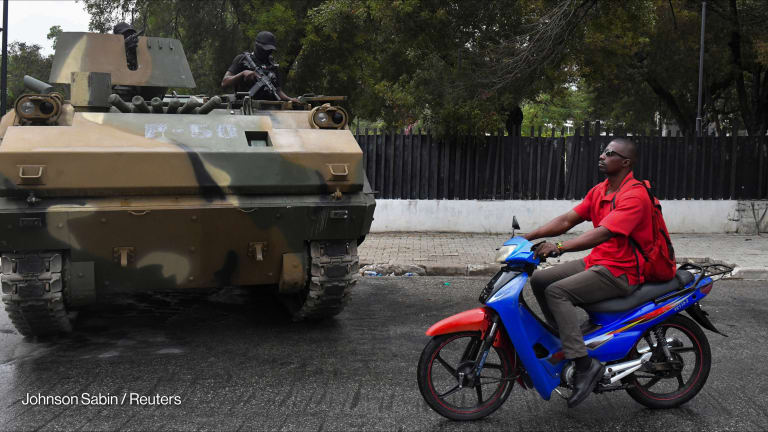The U.S. Agency for International Development will seek supplemental emergency funds to offset expenses in Haiti. The agency’s chief told Congress last week that he hopes to avoid reallocating funds from other crises relief programs.
“We’ve been in close contact with our implementing partners in other complex crises around the world and have asked them not to delay or slow down program implementation – working under the assumption those additional resources would arrive prior to the June time frame, which is when we would have to start making those trade-offs that we hope not to make,” USAID Administrator Rajiv Shah said at a House Foreign Affairs Committee hearing on the White House’s fiscal 2011 budget proposal.
Shah expects the supplemental to “reconstitute” the International Disaster Assistance fund, which is used to respond to emergencies. In total, USAID has spent approximately $350 million of the more than $600 million spent by the U.S. government in post-earthquake Haiti, Shah said, with the Defense Department assuming the bulk of the remainder. The U.S. agencies will look to reduce their financial shares of the overall relief effort with commitments from multilateral agencies and foreign governments.
To date, USAID efforts in Haiti have focused on urban search and rescue missions, health, and distribution of food and water. Moving forward, the USAID chief said, rubble removal, sanitation and shelter would be the agency’s priorities.
Shah also said USAID has been tracking food prices in various areas to prevent food aid from upsetting local markets. Beans and vegetable oil prices have remained stable, while the data on rice has fluctuated widely.
The U.S. is now helping the Haitian government to enact a country plan devised last spring that is based on creating viable economic centers outside of the capital, Port-au-Prince.
“We expect them to unveil that plan in a more updated and specific form at the upcoming donors conference,” Shah said, referring to an upcoming meeting in New York, “and believe that does constitute the groundwork for a very strong reconstruction effort that will hopefully build back a more vibrant and more effective economy, governance system and ability to meet human needs in Port-au-Prince and, perhaps more importantly, to the majority of the population outside of Port-au-Prince.”
Foreign aid reform
The White House’s plans for overhauling foreign assistance could become clearer this spring. The State Department’s Quadrennial Diplomacy and Development Review is past its initial exploratory phase and its operational strategy should be completed by April or May, Shah said.
The QDDR and a presidential study directive on U.S. development policy are expected to chart the Obama administration’s course for presenting an all-of-government approach to aid. Legislators, led by Sens. John Kerry (D-MA) and Richard Lugar and Rep. Howard Berman (D-CA) have been floating plans to reform aid and development initiatives.
A QDDR task force, Shah said, is currently generating recommendations for how the U.S. government’s development initiatives should plan policies, budget for and evaluate programs, help country missions develop long-term investment strategies, and partner with governments, nongovernmental organizations and the private sector.
Shah again stressed rebuilding USAID personnel and infrastructure as priorities for fiscal 2011, along with securing Iraq, Afghanistan and Pakistan, and “meeting urgent global challenges.”
Rep. Gerald Connolly (D-VA) was the most outspoken advocate of delegating authority for all government aid programs to the USAID administrator. Connolly urged Shah to make USAID into a “cutting-edge development agency” instead of a center for dispersing contracts, and to reclaim programs lost to the State Department, the Pentagon, the Millennium Challenge Corp. and the President’s Emergency Plan for AIDS Relief, or PEPFAR, during the past decade.








